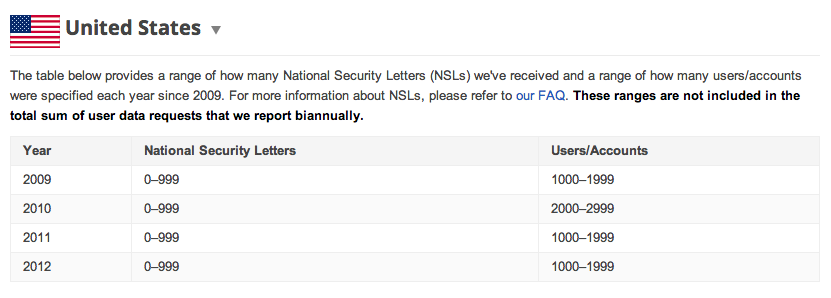
CNET News reported that Google is “the first Internet company to shed light on a highly secret — and controversial — warrantless electronic data-gathering technique used by the FBI.”
In a blog post, Google said that “When conducting national security investigations, the U.S. Federal Bureau of Investigation can issue a National Security Letter (NSL) to obtain identifying information about a subscriber from telephone and Internet companies” and added that “the FBI has the authority to prohibit companies from talking about these requests.”
On its website, the Electronic Privacy Information Center (EPIC) said that “National Security Letters (NSLs) are an extraordinary search procedure which gives the FBI the power to compel the disclosure of customer records held by banks, telephone companies, Internet Service Providers, and others. These entities are prohibited, or “gagged,” from telling anyone about their receipt of the NSL, which makes oversight difficult.”
Google said that it scrutinizes such request “to ensure they satisfy the law and our policies” and that the seen to “narrow requests that are overly broad.” They also notify users “when appropriate” and “require that government agencies use a search warrant if they’re seeking search query information or private content, like Gmail and documents, stored in a Google Account.”
Google was deliberately vague about the number of requests and said that it had received “0-999″ National Security Letters” for each year from 2009 to 2012 but had received requests on between 1000-1999 users/accounts each of these years except 2010 when it received between 2000 and 2999.
More
Google Transparency Report Highlights Just How Much We Don’t Know About National Security Letters” from the Electronic Frontier Foundation
EFF’s paper 2012: When the Government Comes Knocking, Who Has Your Back?
Center for Democracy & Technology on Security & Surveillance: ECPA
